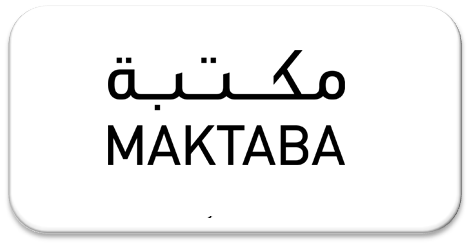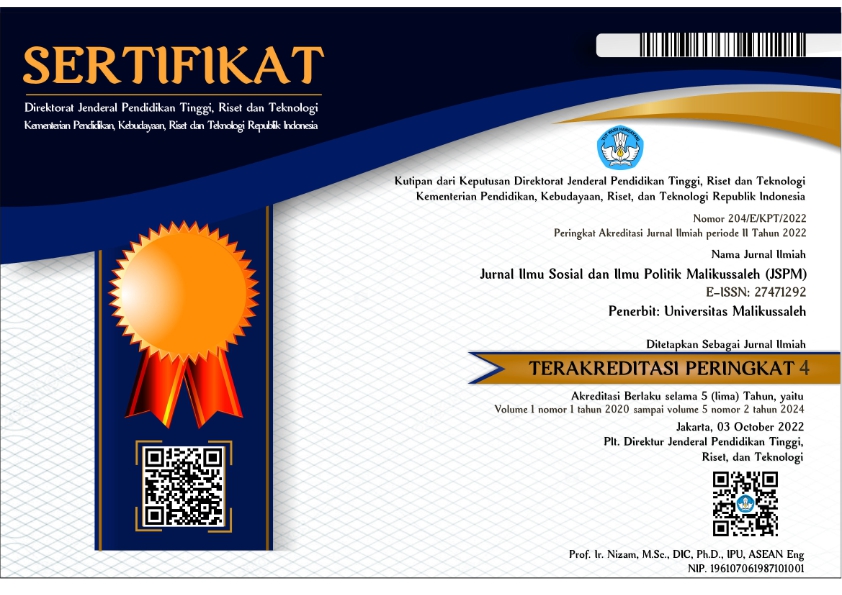EMPOWERING WOMEN IN IMPROVING FAMILY WELFARE THROUGH CULTURED INDEPENDENT WOMEN CLASS PROGRAM
Abstract
Women's empowerment has become the main focus in efforts to improve family welfare. One of the approaches taken is a cultural independent class program which aims to develop the potential of women to preserve cultural identity in their area so that they can actively contribute to improving the quality of life and family income. The aim of this research is to determine women's empowerment in improving family welfare through a culturally independent women's class program. The method used in this research is qualitative and data is obtained by observation, documentation, interviews, documentation and focused discussions (FGD). The results obtained from this research are increasing family welfare and supporting national development goals as well as creating positive changes in society and increasing women's understanding of the importance of gender equality and cultural mainstreaming in achieving sustainable prosperity.
keluarga. Salah satu pendekatan yang dilakukan adalah program kelas mandiri berbudaya yang bertujuan untuk mengembangkan potensi yang dimiliki oleh perempuan untuk melestarikan identitas budaya di daerahnya sehingga dapat berkontribusi aktif dalam meningkatkan kualitas hidup dan penghasilan keluarga. Tujuan penelitian ini untuk mengetahui pemberdayaan perempuan dalam meningkatkan kesejahteraan keluarga melalui program kelas perempuan mandiri berbudaya. Metode yang digunakan dalam penelitian ini adalah kualitatif dan perolehan datanya dengan observasi, dokumentasi, wawancara, dokumentasi dan diskusi terfokus (FGD). Hasil yang diperoleh dari penelitian ini adalah meningkatnya kesejahteraan keluarga dan ikut mendukung tujuan pembangunan nasional serta menciptakan perubahan positif terhadap masyarakat dan meningkatkan pemahaman perempuan tentang pentingnya kesetaraan gender dan pengarustamaan budaya dalam pencapaian kesejahteraan yang berkelanjutan.
Keywords
Full Text:
PDFReferences
Creswell, J. W. (2014). Research Design (Qualitative, Quantitative, and Mixed Methods Approaches). In Research Design Third Edition. Sage Publications.
Duflo, E. (2011). Women’s Empowerment And Economic Development (Vol. 11, Issue 2). https://doi.org/10.16194/j.cnki.31-1059/g4.2011.07.016
Folbre, N. (2006). Measuring Care: Gender, Empowerment, and the Care Economy. Journal of Human Development, 7(2), 183–199. https://doi.org/10.1080/14649880600768512
Hanis, N. W., & Marzaman, A. (2020). Peran Pemberdayaan Kesejahteraan Keluarga dalam Pemberdayaan Perempuan di Kecamatan Telaga. Publik (Jurnal Ilmu Administrasi), 8(2), 123. https://doi.org/10.31314/pjia.8.2.123-135.2019
Hooks, B. (1984) Feminist Theory: From Margin To Center. South End Press
Indonesia, K. P. P. dan P. A. R. (2012). Pembangunan Manusia Berbasis Gender 2012. In Pembangunan Manusia Berbasis Gender 2012 (pp. 1–173). CV. Permata Andhika.
Kabeer, N. (2005). Gender equality and women’s empowerment: A critical analysis of the third Millennium Development Goal. Gender and Development, 13(1), 13–24. https://doi.org/10.1080/13552070512331332273
Kuncoro, A., & Kadar, K. (2016). Pengaruh Pemberdayaan Perempuan dan Peningkatan Sumberdaya Ekonomi Keluarga. BUANA GENDER : Jurnal Studi Gender Dan Anak, 1(1), 45–54. https://doi.org/10.22515/bg.v1i1.67
Marwanti, S. dan A. D. I. (2012). Model Pemberdayaan Perempuan Miskin Melalui Pengembangan Kewirausahaan Keluarga Menuju Ekonomi Kreatif Di Kabupaten Karanganyar. SEPA : Vol. 9 No.1, 9(1), 134–144.
MD, T. A. P., & Hudaidah, H. (2021). Pemikiran Kartini Mengenai Pendidikan Perempuan. Edukatif : Jurnal Ilmu Pendidikan, 3(2), 562–568. https://doi.org/10.31004/edukatif.v3i2.386
Mohanty, C. T. (1984). Under Western Eyes: Feminist Scholarship and Colonial Discourses. Feminist Review, 30 (1), 61-88
Nussbaum, M.C. (2000) Women and Human Development: The Capabilities Approach. Cambridge University Press.
Sen, A. (1999). Development as Freedom. Anchor Books
Susanti, L. E., Ratih, K., & Sari, T. (2021). model PRA UNTUK PEMBERDAYAAN PEREMPUAN. Jurnal Abdi Masyarakat, 01(01), 11–21.
Tjiptaningsih, W. (2017). Pemberdayaan Perempuan Dalam Upaya Peningkatan Ekonomi Keluarga (Studi Kasus Pada Kelompok Usaha Perempuan di Desa Sindangkempeng Kecamatan Greged Kabupaten Cirebon). Jurnal Ilmiah Administrasi, 2(1), 28–35. https://doi.org/http://dx.doi.org/10.33603/reformasi.v2i1.1451
DOI: https://doi.org/10.29103/jspm.v5i1.13358
 Article Metrics
Article Metrics
 Abstract Views : 69 times
Abstract Views : 69 times
Refbacks
- There are currently no refbacks.
Copyright (c) 2024 Siti Hajar

This work is licensed under a Creative Commons Attribution-ShareAlike 4.0 International License.
INDEXED BY:




.png)









Redaksi Jurnal Ilmu Sosial dan Ilmu Politik Malikussaleh (JSPM): Gedung Fakultas Ilmu Sosial dan Ilmu Politik Universitas Malikussaleh. Kampus Bukit Indah Jln. Sumatera No.8, Kec. Muara Satu Kota Lhokseumawe, Prov. Aceh, Indonesia. eMail: jspm@unimal.ac.id

This work is licensed under a Creative Commons Attribution-NonCommercial-ShareAlike 4.0 International License



.png)



